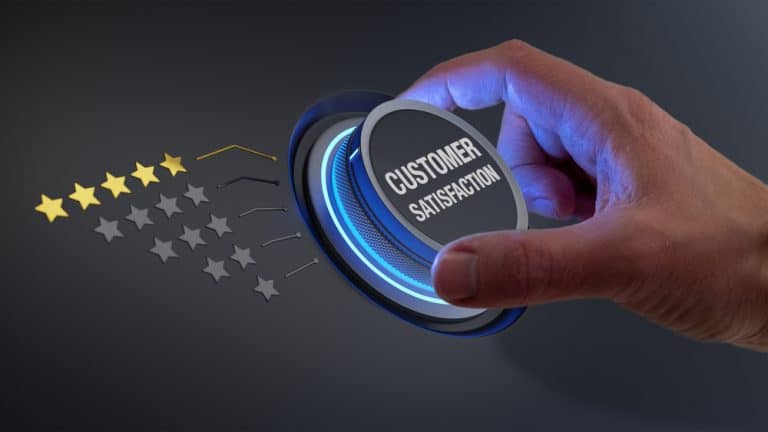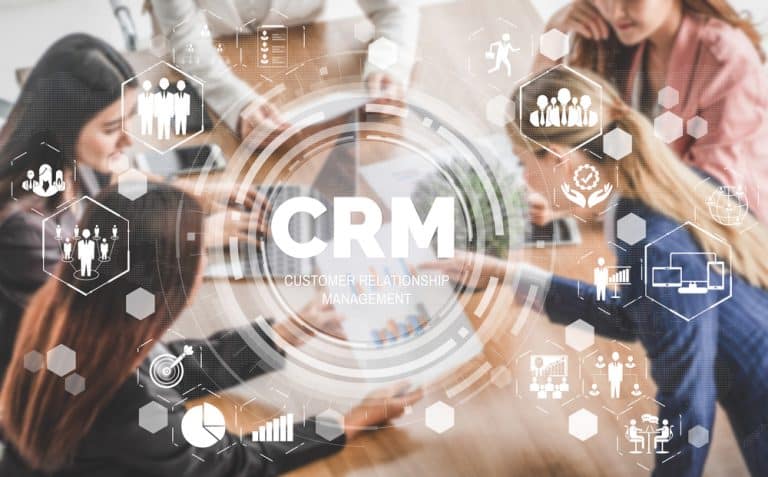Best CRM
CRM is an acronym which stands for Customer Relationship Management. It is a term which has come to mean different things to different people, but at its core, CRM is about managing relationships with customers.
There are a number of different ways to approach CRM, with each business needing to find the approach which best suits its own needs. However, there are some common features which are usually included in a CRM system.
These features might include:
- A database of customer information
- Tools for managing customer interactions
- Workflows and automation to manage the sales process
- Reporting and analytics to track performance
The best CRM systems will offer a range of features which can be tailored to the needs of each business. They should also be easy to use, so that businesses can get up and running quickly and start seeing results from their investment.
Managing a company’s interactions, business processes, and relationships with its customers is of primary importance because, without customers, a business would not exist. The best CRM systems help businesses to streamline their processes and workflows, so that they can better serve their customers and grow their relationships.
At the heart of customer relationship management is a system built and designed to capture all customer interactions. This data is then used to help the organization make better decisions about how to engage with customers, what products or services to offer them, and how to optimize the customer experience. This system or tool is responsible for streamlining several applications related to CRM in one way or another, including:
- Productivity
- Contact management
- Sales management
- Marketing automation
- Customer service
- Data analysis
Productivity – One of the most important aspects of any business is productivity. A good CRM system can help to increase productivity by automating tasks and processes, so that employees can spend more time serving customers and less time on administrative tasks.
Contact management – Another key aspect of CRM is contact management. An effective contact management system allows businesses to keep track of customer contact information, so that they can easily get in touch with customers when necessary.
Sales management – Sales management is another important aspect of CRM. This system helps businesses to streamline their sales processes, so that they can close more deals and increase revenue.
Marketing automation – Marketing automation is another key feature of a good CRM system. This feature helps businesses to automate their marketing tasks, so that they can save time and increase efficiency.
Customer service – Customer service is an indispensable component of CRM. It helps a company by providing better support to their customers, so that they can keep them happy and loyal.
Data analysis – Finally, data analysis is another important component of CRM. This system helps businesses to make better decisions by analyzing customer data and providing insights meant to help improve the customer experience.
The greatest CRM systems have a vast range of capabilities that may be customized to fit the demands of each company. They likewise must be simple to use so that companies can get up and running fast and start seeing results from their investment.
When selecting a CRM system, businesses should consider their own demands and needs. They should also think about the characteristics that are most essential to them and ensure that the system they choose includes those features. Businesses should search for a CRM solution that is simple to use while still providing a good ROI.
The best CRM systems you can find today offer a wide range of features, including:
Database of Customer Information – One of the most important features of a CRM system is its ability to store customer information in a central database. This database should be easy to use and accessible by all employees.
Tools for Managing Customer Interactions – A good CRM system should also include tools for managing customer interactions. These tools should help businesses to track customer contact information, so that they can easily get in touch with customers when necessary.
Workflows and Automation to Manage the Sales Process – A good CRM system should also include workflows and automation to manage the sales process. This system should help businesses to streamline their sales processes, so that they can close more deals and increase revenue.
Reporting and Analytics to Track Performance – Performance tracking is crucial for any business. The best CRM system should include reporting and analytics features to help businesses track their performance and make necessary changes.
Integrations with Other Business Systems – A CRM system is only effective if it offers integrations with other business systems. This feature is important for businesses that use multiple applications to run their operations. The best CRM
Customer Service Module – The best CRM system should also include a customer service module. This module should help businesses to provide better support to their customers, so that they can keep them happy and loyal.
Data Import/Export Functionality – The best CRM system should also offer data import/export functionality. This feature is important for businesses that need to move data between different applications.
Flexible Deployment Options – The best CRM system should offer flexible deployment options. This feature is important for businesses that want to deploy the system on-premise or in the cloud.
The above features are just some of the most important ones that businesses should look for when choosing a CRM system.
Customer Relationship Management Software
A CRM solution exists with the purpose of solving various business needs. It primarily aims to improve customer relations and make the process of managing customer interactions more streamlined.
From a very broad perspective, CRM software is a digital solution that businesses can use to manage their customers’ data. The first thing that any business should do is identify its needs in order to find the most suitable CRM software. Not all businesses are the same, therefore, it is important to find a system that’s tailor-fitted to the specific needs of an organization.
The features that are most important for a business will depend on the size of the company, the industry it is in, and its sales process. However, there are some features that are essential for all businesses, such as:
Contact Management – A contact management function in a CRM system should allow companies to keep track of consumer data in one central database. All workers should be able to use and access this database without difficulty.
Lead Management – AA decent CRM system should include a lead management tool. This tool should allow businesses to keep track of and manage leads, allowing them to be followed up on promptly.
Opportunity Management – A good CRM system should also include an opportunity management feature. This feature should help businesses to track and manage opportunities, so that they can be converted into sales.
Reporting and Analytics – The best CRM system should also include reporting and analytics features to help businesses track their performance. This feature is important for businesses that want to make changes to their sales processes.
Integrations – The ideal CRM system should be able to connect with other company systems. This functionality is essential for businesses that use numerous programs to manage their activities.
Flexible Deployment Options – The ideal CRM system should provide a variety of deployment alternatives. This characteristic is essential for organizations that want to install the system on-premises or in the cloud.
Does a Small Business or Company Require a CRM Software?
It’s a significant expense to venture into CRM software integration. Nonetheless, a CRM software is a valuable asset for managing leads and customers, so the investment will definitely pay off. But that’s if you’re a big company with deep pockets. As a small business or startup, you may not have the budget for it–at least not yet.
Well, there are CRM software providers that offer free plans for small businesses. The challenge is to find a CRM software that meets your specific business requirements without burning a hole in your pocket.
It’s not like you will be using all the features in a CRM software anyway, so you don’t need to spend on the bells and whistles. Start with the basics and only add features as your company grows.
Who Benefits From a CRM Software?
The modern world is a fast-paced, competitive place. In order to succeed, businesses need to be able to effectively manage their customer relationships. While there exist traditional ways to do this, more and more businesses are finding that a CRM system is an indispensable tool.
CRM systems help businesses keep track of their customer interactions, allowing them to better understand their needs and preferences. This information can then be used to improve the quality of service and support that customers receive. In addition, CRM systems make it easy to share customer information between different departments within a company, ensuring that everyone is on the same page.
Practically everyone in the workforce will benefit from it, i.e., sales team, marketing people, administrative staff, and even the CEO.
A CRM software gives salespeople more time to sell because it automates and streamlines all the processes involved in selling, from prospecting to lead nurturing to closing deals.
Marketing teams will also find CRM software very useful as it helps track marketing campaigns and measure their ROI. And since it’s all in one place, it will be easier to find the needles in the haystack–the leads that are most likely to convert into paying customers.
Even administrative staff and CEOs can benefit from CRM software as it provides them with insights into how the company is performing. CRM software can also help improve communication and collaboration within the company.
Collaboration and Productivity
Improved collaboration is one of the most critical returns of a company’s investment in CRM software. It enables employees to have a clear understanding of their responsibilities, customers, and projects. The software also provides a platform where employees can easily share files, documents, and ideas.
Aside from collaboration, it also enhances the level of productivity, from the bottom to the top. As long as everyone’s on the same page, it’s easier to avoid duplication of effort and confusion.
A clear overview of a business’s target market and existing clients is essential to its success. The ability to cultivate and manage these relationships over time can mean the difference between a one-time customer and a lifelong client.
A CRM system is used to manage these things. A CRM system is designed to assist firms in tracking and managing their leads, customers, and sales opportunities. It assists businesses in developing and maintaining customer and client connections.
A CRM system is a worthwhile investment for any organization, no matter how big or small. It gives companies an edge by allowing them to better manage their client interactions. CRM software may be available in a variety of forms and sizes. There are CRM systems built specifically for small businesses, as well as CRM systems designed particularly for huge enterprises. There are CRM solutions geared toward specific industries, as well as those that are intended to be used by everybody.
If an organization lacks CRM, it will struggle to keep track of customer interactions and data. As a result, the company will have difficulty understanding customer needs and preferences, which can lead to missed sales opportunities and decreased customer satisfaction.
Without CRM, businesses may find it difficult to properly target marketing campaigns or assess the effectiveness of their sales teams. In addition, they may have trouble understanding which products or services are most popular with their customers. As a result, the company may not be able to make the necessary adjustments to its offerings in a timely manner.
In short, CRM is essential for businesses that want to keep track of their customer data and interactions. Without it, they may miss out on sales opportunities, fail to properly target their marketing campaigns, and have difficulty understanding which products and services are most popular with their customers.
Customer Relationship Management CRM
Three out of five companies get complaints about customer support. It’s a sad reality for consumers and businesses alike.
Bad customer service has a ripple effect that can touch every area of your company, from sales to marketing to product development. It can cost you customers, damage your reputation, and make it harder to attract new business.
That’s why it’s so important to have a good customer relationship management (CRM) system in place. A CRM system provides the mechanism for tracking and managing your customer interactions, from the first contact to the post-purchase follow-up. It is especially crucial for businesses and companies that must compete with bigger and more established competition.
This assessment tool is a comprehensive record of your customer’s interactions with your firm and allows you to view all their engagement in one spot. This data is useful for increasing the customer experience and expanding your company.
CRM is all about effectively and successfully managing business relationships. It’s a holistic approach that encompasses the entire customer life cycle, from acquisition to retention.
The information linked to a company’s customer base is the primary asset for any business. A CRM system helps you organize and manage this valuable resource. A CRM system is a must for any business that wants to survive and thrive in today’s competitive marketplace. It hands out the insights you need to make informed decisions about your marketing, sales, and product development strategies.
Better Sales Conversion Rates
Every business strives to increase sales and revenue. A CRM system may assist you in increasing your conversion rates by providing the resources you need to manage your customer interactions more effectively.
With a CRM system, you can keep track of every contact with a possible customer, from the first contact to the post-purchase follow-up. This provides you with a detailed image of the client’s journey and potential pain spots along the way.
You may also utilize a CRM system to sort your clients and target them with more personalized marketing messages. This increases the likelihood that they’ll take the required action, whether it’s signing up for your email list, downloading a white paper, or purchasing something.
Because a CRM system provides insight into the sales pipeline, you may more easily see possibilities to upsell and cross-sell. Hence, it helps increase your average order value and profits.
Efficient Data Management
A CRM system enables you to manage your customer data more efficiently. It gives you a single database to store all your client information, which makes it easier to track and manage your customer interactions.
Data management is a critical factor when it comes to the creation of essential CRM processes, such as lead nurturing and customer segmentation. A CRM system affords the ability to effectively manage your customer data and use it to improve your marketing, sales, and product development strategies.
Improved Customer Service
A CRM system helps you track every interaction with a customer, which makes it easier to provide them with the best possible service.
You can use a CRM system to track customer service requests, complaints, and compliments. This data can be used to improve your customer service processes and make sure that your customers are getting the best possible experience.
A CRM system also enables you to create automated customer service processes. For example, you can set up an automatic email response to a customer service request. This can help you save time and provide a better experience for your customers.
Customer Data
How crucial is customer data for a business? Data is the lifeblood of any business. It helps you understand your customers, their needs, and how to best serve them. This resource will make or break a company’s success.
A CRM system is a software program that allows you to manage your customer interactions. With this data, you may implement marketing, sales, and product development methods. You can keep track of every interaction with a client using a CRM system. This gives you valuable information that may be utilized to improve the customer experience.
A CRM system, on the other hand, allows you to handle your customer data more efficiently. It supplies a single database for all of your client information, making it simpler to track and manage customer interactions.
Data management is a critical factor when it comes to the creation of essential CRM processes, such as lead nurturing and customer segmentation. Arguably the greatest perk of a CRM system is that it allows you to effectively manage your customer information and use it to enhance your marketing, sales, and product development activities.
With complete customer data on hand, you can market to your target audience more effectively. You can also cross-sell and upsell products and services to your current customer base. Additionally, you can use this data to improve your customer service processes.
Did you know that a customer’s likelihood of doing business with you again increases by 16% when they obtain a positive customer service experience?
A CRM system helps you track every interaction with a customer, making it simpler to provide them with the best possible service. You can use a CRM system to keep tabs on customer service requests, complaints, and compliments. This data can be used to improve your customer service processes and make sure that your customers are getting the best possible experience.
Additionally, a CRM system enables you to create automated customer service processes. For example, you can set up an automatic email response to a customer service request. This can help you save time and provide a better experience for your customers.
By automating your customer service processes, you can improve the overall experience for your customers, simultaneously giving your staff time to focus on other tasks such as sales forecasting and affording an effective customer relationship management solution.
There have been countless instances of businesses, especially in the food service industry, that failed merely because they did not have a good system for managing customer data. If you want your business to succeed, then you need to find a CRM system.
Be reminded that it isn’t exclusively about keeping up with the changing times. Utilizing customer data with a CRM system in place brings forth a plethora of benefits for businesses that they cannot ignore.
Customer information may be more effectively managed using CRM systems, which may be utilized to improve marketing and sales endeavours as well as product development processes. Automating client assistance procedures may help you save time while enhancing your consumers’ experiences.
The collection of customer data and processing it accordingly gives businesses the advantage in meeting customer expectations. Businesses that make use of customer data are able to improve their processes, which in turn enhances their brand image and reputation to enterprise customers.
Adopting a CRM system is essential for businesses, big or small. It helps level the playing field, giving small businesses the ability to compete with larger businesses. A CRM system gives you an edge over your competition by helping you better understand and manage your customer data.
Furthermore, customer data affords the most accurate picture of what your target audience wants from your business – be it a specific product or an improvement of your existing service. With the right information, it’s more likely that businesses are able to deliver the right product at the right time, something your clients want.
The advantages of using a CRM system are clear. If you’re not using one, now is the time to start. Implementing a CRM system will help you better understand your customers and give your sales professionals a competitive edge.
Top CRM Software
So, you finally decided to jump on the chance of integrating a CRM software for your growing business. Let us tell you right now that you’ve taken the right path to better ROI and increased revenue.
But mind you, not all CRM solutions out there will give you a bang for your buck. In order for you to get the most out of your decision, it’s important to consider a few things first before finalizing a purchase.
To help you out, we’ve listed the best CRM software systems available on the market today. Take a look.
HighLevel – This highly intuitive platform for agencies brings a ton of useful things to the table. From automated proposals, contracts, and invoicing to managing your sales pipeline and tracking your team’s performance – everything you need to 10x your agency is here.
Zoho CRM – Zoho has long been a favorite among small businesses for its budget-friendly solutions. Its CRM software is packed with features like lead management, sales tracking, opportunity management, and more.
HubSpot Sales CRM – HubSpot is known for its all-in-one marketing solutions. But did you know that they also offer powerful CRM software? This system is perfect for sales teams who want to close more deals and grow their business through targeted marketing efforts.
Nimble – Nimble is another great CRM software for small businesses. It offers features like contact management, sales automation, and social media integration.
Salesforce Sales Cloud – Sales force automation is one of the most popular CRM platforms on the market. Its Sales Cloud solution offers features like lead and opportunity management, account management, and more.
Sage CRM – Sage CRM is a great choice for businesses who want a complete CRM solution. It offers features like customer service, marketing automation, and sales force automation.
Microsoft Dynamics 365 – Microsoft Dynamics 365 is a comprehensive CRM and ERP platform. It offers features like customer relationship management, financials, supply chain management, and more.
We admit that choosing the best CRM software is no cakewalk, but if you pay attention to the factors below, the job will be easier:
Factor 1 – Automation
The best CRM software must be able to automate repetitive tasks so that your sales team can focus on more important things. Look for a system that offers features like lead management, contact management, and opportunity management.
Factor 2 – Ease of Use
The greatest CRM software should be simple to start using so that your sales staff can get started right away. Look for a system with a straightforward user interface and ease of use.
Factor 3 – Reporting and Analytics
The most appropriate CRM software should have reporting and analytics capabilities so you may analyze the success of your sales staff. Look for a system with features such as sales reports, pipeline management, and more.
Factor 4 – Collaboration
The ideal CRM software should encourage cooperation between the sales and marketing departments. Search for a system that includes social media connections, chat, and other goodies.
Factor 5 – Mobile Accessibility
The ideal CRM software should be available on mobile devices so that your salespeople may use them whenever and wherever they choose. Seek a system that offers iOS and Android mobile apps.
CRM Tools List
There’s no shortage of CRM software on the market, but not all of them are created equal. Your responsibility is to determine your company’s needs for a CRM tool; once you’re over with that, you can then weigh on these types:
1 – Operational
An operational CRM tool is designed to automate and manage your company’s sales, marketing, and customer service processes. It includes features like lead management, contact management, pipeline management, and more. Operational tools are useful in processing customer data with the intention of boosting sales and improving customer service.
2 – Analytical
An analytical CRM tool is designed to help you analyze your company’s customer data. It includes features like reporting, analytics, and dashboards. Analytical tools are useful in understanding your customers better and making informed decisions about your marketing and sales strategies.
3 – Collaborative
A collaborative CRM tool is designed to help you collaborate with your team. It includes features like chat, social media integration, project management, and more. Collaborative tools are useful in getting the most out of your sales team by working together more efficiently. This tool focuses on how you work with vendors, suppliers, and everyone else responsible for the success of your business.
4 – Mobile
A mobile CRM tool is designed to help you access your CRM data on the go. It includes features like mobile apps, offline access, and more. Mobile tools are useful in staying connected with your customers even when you’re away from your desk. Furthermore, some mobile CRM tools offer features like GPS tracking and geofencing, which can be very helpful for field salespeople.
5 – Social
A social CRM tool is designed to help you integrate your CRM data with social media platforms like Facebook, Twitter, and LinkedIn. It includes features like social media monitoring, contact management, and more. Social tools are useful in building relationships with your customers and understanding their needs.
6 – Strategic
A strategic CRM tool is designed to help you plan and execute your company’s marketing and sales strategies. It includes features like marketing automation, sales forecasting, sales pipeline, and more. Strategic tools are useful in aligning your marketing and sales efforts with your business goals.
7 – Predictive
A predictive CRM tool is designed to help you predict future customer behaviour. It includes features like lead scoring, customer segmentation, and more. Predictive tools are useful in understanding your customers better and making informed decisions about your marketing and sales strategies.
But what if you need two or more types of CRM tools? Well, nothing stops you from getting comprehensive and sophisticated CRM software that offers all the features you need. Meanwhile, if you’re on a limited budget, you may want to consider getting two or more CRM tools that cover your needs in different areas.
But if you wish to go all-in, we recommend HighLevel, a powerful and comprehensive CRM software affording all the features you need in a single platform. HighLevel is an all-in-one solution that covers every aspect of your company’s marketing, sales, and customer service processes. With HighLevel, you’ll be able to boost your sales, improve your customer service, and streamline your operations.
It’s an operational CRM tool that helps you automate and manage your company’s sales, marketing, and customer service processes. It includes features like lead management, contact management, opportunity management, and more. Operational tools are useful in processing customer data with the intention of boosting sales and improving customer service.
It’s also an analytical CRM tool that helps you analyze your company’s customer data. It includes features like reporting, analytics, and dashboards. Analytical tools are useful in understanding your customers better and making informed decisions about your marketing and sales strategies.
HighLevel is a CRM platform that includes many useful features. It has chat, social media integration, and other elements. Collaborative solutions are beneficial in allowing you to get the most out of your sales reps by working together more effectively.
CRM Tools Examples
Customer relationship management (CRM) software is used to help businesses manage their customer interactions. There are many various types of CRM software, each with its own set of capabilities. Here’s a list of the prime examples of CRM software:
1 – Salesforce
Salesforce is a CRM software that has risen to prominence in the last few years. It includes elements such as contact management, lead management, opportunity management, etc.
2 – Zoho CRM
Zoho CRM is another popular CRM software that offers a wide range of features to help businesses manage their customer interactions. Unlike other CRM tools, this one offers a free version for small businesses.
3 – HubSpot Sales CRM
HubSpot Sales CRM is a CRM software that offers a wide range of features to help businesses manage their customer interactions. What makes it distinctive and different from the rest is that it’s designed specifically for sales reps.
4 – Freshsales
Freshsales is a CRM software that’s designed specifically for small businesses. It incorporates features like that contact management, lead management, opportunity management, etc.
5 – Pipedrive
Pipedrive is a CRM software that helps businesses manage their customer interactions. It integrates the most critical features of a CRM tool, including but not limited to opportunity management, contact management, lead management, and others.
6 – Apptivo CRM
Apptivo CRM is another CRM software that helps businesses manage their customer interactions. The most prominent perks and attributes of this tool are its project management and invoicing capabilities.
7 – SugarCRM
SugarCRM is a CRM software that helps businesses manage their customer interactions. Expect to get the best and most valuable features, including contact management.
8 – HighLevel
When it comes to CRM software, HighLevel takes the cake. It’s a comprehensive package that covers all phases of your business’s marketing, sales, and customer service operations. You’ll be able to increase your sales, enhance customer support, and simplify your processes using HighLevel.
CRM tools come equipped with the best capabilities of accelerating conversions and boosting sales. It has various features for managing customer interactions and helps you make the best out of your sales team. You can use it to get a better understanding of your customers and make more informed decisions about your marketing and sales strategies.
The way you choose a CRM software requires a complete understanding of your company’s weaknesses, immediate needs, and long-term goals. You should also consider the type of business you have, the size of your company, and your budget. If you’re looking for the best CRM software, HighLevel should be at the top of your list.
Best CRM Tools
Are you looking for the best CRM tools, yet you don’t know where to start your search? The key to understanding and picking the best CRM tool is being widely familiar with the features and functions. The truth is many businesses ended up with the wrong software or tool for CRM simply because they were clueless as to what to look for in one. You don’t want to make that same mistake and add to the list of business failures in CRM.
So, here’s what you should look for:
Mobility – the best CRM tool should be accessible anytime, anywhere. Mobility is an attribute that’s often overlooked in CRM, but it plays a crucial role, especially for salespeople who don’t have a choice but to be always on the move.
Contact and Lead Management – this is the basic function of every CRM tool. It’s important to have a software that can keep track of your customers and leads effectively.
Pipeline Management – this is a must-have for sales teams. A good CRM tool should be able to help you track your sales pipeline and give you an overview of your sales funnel.
Reporting and Analytics – this is a useful feature that allows you to create reports based on your data. It aids in the development of better judgments by providing insights into your sales performance.
Integrations – you need something that can easily connect with the tools you’re already using, such as your email client and accounting software.
Now that you’re familiar with the notable features to look for in a CRM tool, it’s time to start your search for the best one. Use this guide as your checklist when evaluating different CRM software.
User-friendly interface – the best CRM tool should be easy to use. It should have a user-friendly interface that’s intuitive and straightforward.
Customizable – it should be flexible enough to meet your unique business needs. Look for a CRM tool that allows you to customize its features and functions according to your preferences.
Affordable – the best CRM tool doesn’t have to be the most expensive. You get to pick several affordable options that offer great features and functions.
Cloud-based – a cloud-based CRM tool is more convenient and easier to use. It won’t require installation and can be accessed anytime, anywhere.
Intelligent – The ideal CRM software is one that is intelligent and can give insights into your data. It should be able to create reports and assist you in making better judgments.
Top CRM Systems
All CRM systems offer valuable help to businesses. But every business has a distinct need for a CRM solution. To know which software best addresses your company’s needs, you must factor in these things first:
1 – Specific Needs
Sales channels, marketing tools, mailing integration, etc. – what does your business or team need the most? You never can get the most out of the money spent on a CRM software if you fail to identify your specific needs.
As the adage says, “it’s all in the details.” As such, it is important to be very detailed when assessing your company’s needs. This way, you can find the CRM software that has all the features and functions you need. For instance, some businesses may need a CRM solution that has a built-in email client while others may need one with an integrated accounting software.
2 – The Customer Base
The next thing you should consider is your customer base. How many customers do you have? What is the average order size? What is the customer lifetime value?
Knowing these things will make you determine the type of CRM software you need. For example, a business with a large customer base will need a CRM tool that can handle a lot of data. On the other hand, an organization with a small customer base can get by with a less complex CRM solution.
3 – The Sales Cycle
The sales cycle is another important factor to consider. How long is the average sales cycle? What are the common stages in the sales cycle?
Answering these questions will help you find a CRM software that can support your sales process. For one, a business with a long sales cycle will need a CRM solution that can track each stage of the cycle.
4 – The Budget
Last but not least, you need to consider your budget. How much are you willing to spend on a CRM software?
There is a wide range of CRM solutions available, so you’re sure to find one that fits your budget. Just be sure to compare the features and functions of each software to get the most bang for your buck.
Now that you know the essential factors to consider, it’s time to start your search for the best CRM software. Here are some of the top CRM systems available:
1 – HubSpot Sales
HubSpot Sales is a great CRM software for small businesses. It offers a free version that includes features like contact management, email tracking, and deal pipeline.
2 – Insightly
Insightly is another CRM software that’s ideal for small businesses. It offers a free plan that includes features like contact management, opportunity tracking, and project management.
3 – Zoho CRM
Zoho CRM is a powerful and feature-rich customer relationship management (CRM) software that’s ideal for any size business. It includes features like contact management, sales automation, and lead capture in its free tier.
4 – HighLevel
HighLevel CRM software is aimed at organizations of all sizes. It includes a free trial that includes features such as contact management, sales automation, and task management.
5 – Freshsales
Freshsales is a CRM software targeted at small enterprises. It has a free edition that includes features such as contact management, lead capture, and email integration.
Frequently Asked Questions
Salesforce is the most used CRM, with 51% of respondents using it in 2018. HubSpot came in second at 27%, followed by SugarCRM (8%), Zoho CRM (6%), and Microsoft Dynamics 365 (4%). Other CRMs mentioned include Infor CRM, SAP Hybris, Oracle Sales Cloud, HighLevel, and Veeva CRM.
Salesforce is the most popular CRM because it is a versatile tool that may be tailored to fit the requirements of any company. Sales automation, customer support and assistance, marketing automation, analytics, and other features are available. It also connects with many different business applications, making it a one-stop shop for many organizations.
HubSpot is a popular CRM because it offers an all-in-one solution for sales, marketing, and customer service. It’s easy to use and provides a wealth of features, including automation, analytics, live chat, and more. Additionally, it integrates with a wide range of business applications.
But the dark horse is HighLevel, with its simple design, customizable workflows, and ability to track every customer interaction, it is quickly becoming the CRM of choice for small businesses.
The best CRM for your business may not be the same as the best CRM for another business. It all relies on your particular needs and goals. There are a few things that you should consider when choosing a CRM, such as:
-How easy is it to use?
-How user-friendly is the interface?
-What features does it offer?
-How much does it cost?
-Is it cloud-based or on-premise?
-Does it integrate with other software?
Once you’ve answered these questions, you’ll have a better idea of what the best CRM is for your business.
The best CRM in 2020 is HighLevel. HighLevel is a cloud-based CRM that helps businesses manage their customer relationships. It delivers features that make it ideal for small businesses, including:
– A drag-and-drop interface that makes it easy to create custom workflows
– A built-in phone system that lets you make and receive calls directly from the CRM
– A wide range of integrations with popular business software, such as QuickBooks and Zapier
– A mobile app that lets you access your CRM data on the go
If you’re looking for a CRM that can help you manage your customer relationships more effectively, HighLevel is a great option.
Quite frankly, there’s no definitive answer to this question as it depends on individual business needs and preferences. However, some of the most popular CRM solutions include HighLevel, Salesforce, Dynamics 365, HubSpot, Zoho and SugarCRM.
Every CRM software delivers a solution for sales teams to manage their customer relationships, but the best CRM system for your business will depend on a number of factors, including the size of your company, your specific industry and the features that are most important to you.
You’re getting the best software for CRM based on how you want to use the system in accordance to the needs of your organization. In other words, it really depends on your needs.
Most of these platforms come with a variety of functionalities that may assist in the simplification of procedures and the tracking of customer interactions and data. Some CRM systems are more comprehensive than others, so it’s important to think carefully about your needs before choosing one.
HighLevel is the best CRM for small businesses. It is simple but quite packed with features to help you manage your customers and sales. As a startup, you don’t have time to waste on complex CRM systems that are difficult to use. This software is offered with a 14-day trial, where you can explore all of its features. Once you decide to purchase, you’ll indulge in an all-in-one sales and marketing platform that doesn’t break the bank.
A CRM tool is software that helps businesses manage their customer relationships. It can be used to track customer data, including contact information, purchase history, and communication records. CRM tools may likewise be used to automate marketing and sales tasks, such as sending out automated emails or creating targeted marketing campaigns.
One noteworthy example is HighLevel, which touts its AI-powered Sales Automation and Customer Relationship Management features. It helps companies increase their sales pipeline by as much as 50%.
There is no “perfect” CRM solution for every company, because the ideal software for a firm depends on its specific demands and objectives. HubSpot Sales, Zoho CRM, and SugarCRM are three well-known CRM software programs.
Salesforce, Zoho CRM, HubSpot Sales, and Insightly CRM are just a few of the most popular customer relationship management (CRM) solutions available today. All of these systems provide various capabilities and benefits that can help businesses improve their sales and performance. However, we’ve seen HighLevel work wonders for companies who are in search of a comprehensive and affordable CRM solution that doesn’t skimp on features, i.e.:
– tracking and organizing customer interactions and data
– nurturing leads and driving sales
– increasing team collaboration
– providing insightful data
Operational, Analytical, and Collaborative.
Operational CRM includes the systems and processes used to track and manage interactions with customers. This can include everything from managing sales and marketing campaigns to handling customer service inquiries and support requests.
Analytical CRM is focused on using data and analytics to understand customer behavior and trends. This information can then be used to improve marketing efforts, sales strategies, and customer service processes.
Collaborative CRM is designed to help businesses improve communication and collaboration between different departments and teams. This can include features like shared contact lists, calendars, and task management tools.
There’s no universal solution since the optimal CRM tool for your organization will be determined by your specific requirements and goals. HighLevel, on the other hand, is a great choice for organizations of all sizes seeking for an affordable and comprehensive CRM solution.
The most notable CRM tool types are operational, analytical, and collaborative.
The systems and processes meant to track and manage customer interactions are referred to as operational CRM. This might include anything from managing sales and marketing campaigns to handling client service calls and requests.
Analytical CRM is concerned with the usage of data and analytics to understand consumer behaviour and trends. This knowledge may then be applied to marketing, sales, and customer service processes to improve them.
Collaborative CRM is a software solution that allows organizations to better communicate and collaborate between departments and teams. Shared contact lists, calendars, and task management applications are all examples of capabilities accessible through collaborative CRM.
Salesforce, Zoho CRM, HubSpot Sales, and Insightly CRM are the most popular CRM systems. All of these systems provide a variety of features and advantages that can help businesses boost their sales success. However, HighLevel is often hailed as the best comprehensive and affordable CRM solution on the market.
Customer relationship management software is a software solution that assists organizations in managing their customer interactions. This might cover everything from keeping track of client data and interactions to sales and marketing campaign management. CRM tools can also give insights into consumer behaviour and trends.
Client Testimonials



























